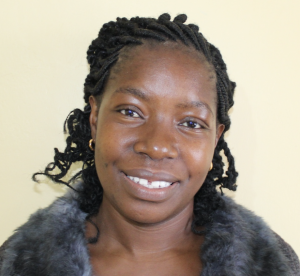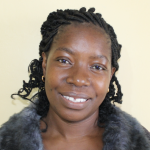Every morning, the 247 pupils of Itovo PAG Primary School walk to school lugging their books and a jerrycan containing water from unknown sources. The water they bring is not enough to cater to the day's needs for them and their 13 teachers, so they have to go to a nearby stream to fetch water during break time and lunchtime, too.
The school's 5000-liter plastic rainwater collection tank depletes quickly since pupils and staff depend on it for drinking, cleaning, cooking, and washing hands. If it doesn't rain, then it goes dry for some days.
After the water runs out, students resort to the nearest stream.

This source is contaminated since it is open: animals drink directly from it, and neighboring community members use the same fetching point to bathe.
The school's Head Teacher, Johnson Owino, explained: "Our pupils have the potential to perform well in their academics, but [this] water crisis affects their concentration in class after going for water. Sometimes, they miss lessons and school altogether due to illness caused by contaminated water and poor sanitation."
Cases of diarrhea and stomach pains are rampant at Itovo. There are reported cases of typhoid and dysentery as well.
Students are overburdened by worry, without any time to play. Consequently, sometimes they delay at the stream and miss lessons. Some skip school to evade the task.
"Most of our time is wasted to go look for water instead of studying," said 11-year-old student Condelisa K., pictured below at the stream. "I have two years to sit for my final exams, but I am afraid my dream of becoming a doctor will not be met because of the poor learning environment. My wish is to get a solution soon."

What We Can Do:
New Well
We conducted a hydrogeological survey at this school and the results indicated the water table beneath it is an ideal candidate for a borehole well. Due to a borehole well's unique ability to tap into a safe, year-round water column, it will be poised to serve all of the water needs for this school's large population, even through the dry months.
The school will help collect the needed construction materials such as sand, rocks, and water for mixing cement. They will also provide housing and meals for the work team, in addition to providing local laborers. We will complement their materials by providing an expert team of artisans and drilling professionals, tools, hardware, and the hand-pump. Once finished, water from the well will then be used by the school’s students and staff for drinking, handwashing, cooking, cleaning, and much more.
Handwashing Stations
The student health club will oversee the two new handwashing stations we will provide, and make sure they are kept clean and in working condition. The club leaders will fill the handwashing stations with water daily and make sure they are always supplied with a cleaning agent such as soap or ash.
VIP Latrines
We will construct two triple-door latrine blocks using local materials that the school will help gather. Three doors will serve the girls and three doors will serve the boys. All of these new latrines will have cement floors that are designed to be easy to use and to clean. And with a borehole right on school property, there should be enough water to keep them clean.
Training on Health, Hygiene, COVID-19, and More
We will hold a one-day intensive training session with students, teachers, and parents. This training will cover a wide range of topics including COVID-19 symptoms, transmission routes, and prevention; personal and environmental hygiene; and the operation and maintenance of the borehole, latrines, and handwashing stations. There will be a special emphasis on handwashing.
Our team of facilitators will use a variety of methods to train, including participatory hygiene and sanitation transformation, and asset-based community development. We will initiate a student health club, which will prepare students to lead other pupils into healthy habits at school and at home. We will also lead lectures, group discussions, and provide illustrative handouts to teach health topics and ways to promote good hygiene practices within the school including handwashing and water treatment. We will then conduct a series of follow-up trainings before transitioning to our regularly scheduled support visits throughout the year.
We and the school strongly believe that all of these components will work together to improve standards at this school, which will help lead to better student academic performance and will help unlock the opportunity for these students to live better, healthier lives.






 Borehole Well and Hand Pump
Borehole Well and Hand Pump
 Rehabilitation Project
Rehabilitation Project
































